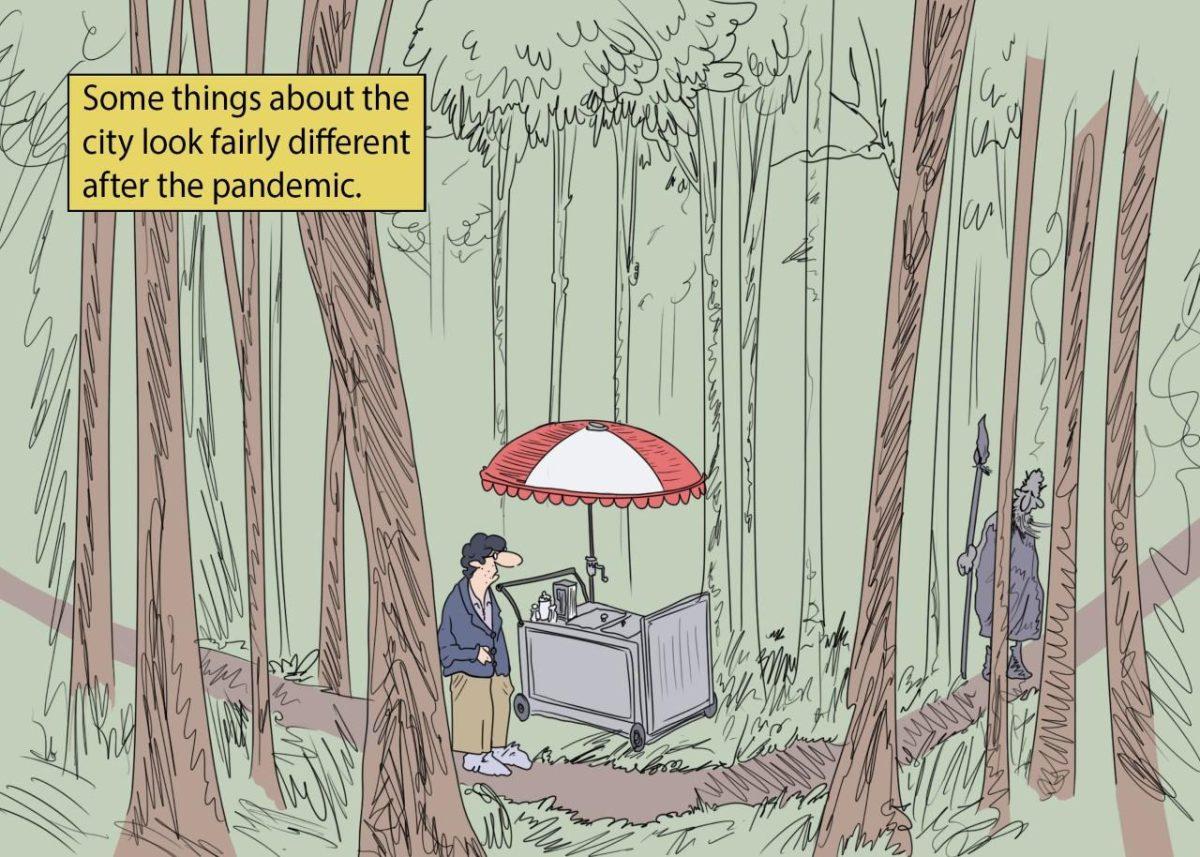As this apocalyptic fever dream lingers on in what is hopefully its final act, I think it is valuable to reflect and consider what could be gained from so much loss and destruction.
Inevitably, change in how we deal with national health issues will be called for and fingers will be pointed. I think everyone can agree that, in order to optimize readiness for the inescapable reality of future pandemics, the efficiency of our actions should be thoroughly studied and scrutinized.
However, I would like to examine some less obvious, more fundamental lessons about human nature that have been made painfully clear in light of our current situation. To begin with, the incredible comforts and conveniences of first-world living have regrettably deceived us into dismissing a grim yet unavoidable truth about ourselves. That is, we are fragile beings.
Modern life has successfully hidden the more disturbing aspects of being human behind the walls of hospitals, prisons, nursing homes, etc. The average person enjoys a status quo that is strangely contrived through a cultural blind spot for suffering, one where humans are presumed to be in control and on an inevitable path toward progress. I think we, especially those of us who are young and have yet to experience the physical effects of aging, are guilty of an unwarranted sense of invincibility.
For many of us, the rise of COVID-19 laid waste to this confidence, at least for the time being, and forced us to reckon with the creeping omnipresence of our mortality. Suffering is no longer confined within walls of institutions; it’s everywhere, putting you and those you love in an extended state of risk.
This notion of humanity being abruptly reminded of its transience in the face of pestilence is precisely what underpins the 1947 existentialist novel “The Plague,” by Albert Camus, which has unsurprisingly seen a significant surge in attention recently. The novel’s basic argument is that the true “plague” has nothing to do with any specific disease. Events like epidemics and war are only clustered manifestations of a truth that is eternally relevant, even in times of relative peace and health. For Camus, the true plague is the reminder that human life can be taken away and rendered meaningless at any moment without reason.
On a similar note, the societal shutdown that, in an almost unprecedented way, so quickly dismantled the structure and stability of human affairs has also provided us with a much needed, though unnerving, reminder of how fragile our culture is.
Disaster is always inevitable but almost never anticipated. This is an ancient, perpetually relevant lesson that refers to our personal understanding of a world that is inherently strange and unpredictable.
Though the seemingly nihilistic attitude of this perspective might not appear very consoling in our already dismal situation, I believe it awakens in us a refreshed sense of our intense dependence on one another while almost paradoxically freeing us with a God’s eye view of our life and its relation to the bigger picture.
Evan Leonhard is a 19-year-old English and philosophy freshman from New Orleans, Louisiana.
Opinion: The pandemic makes us reflect on human life, how our society functions
April 22, 2020
Pandemic city cartoon








